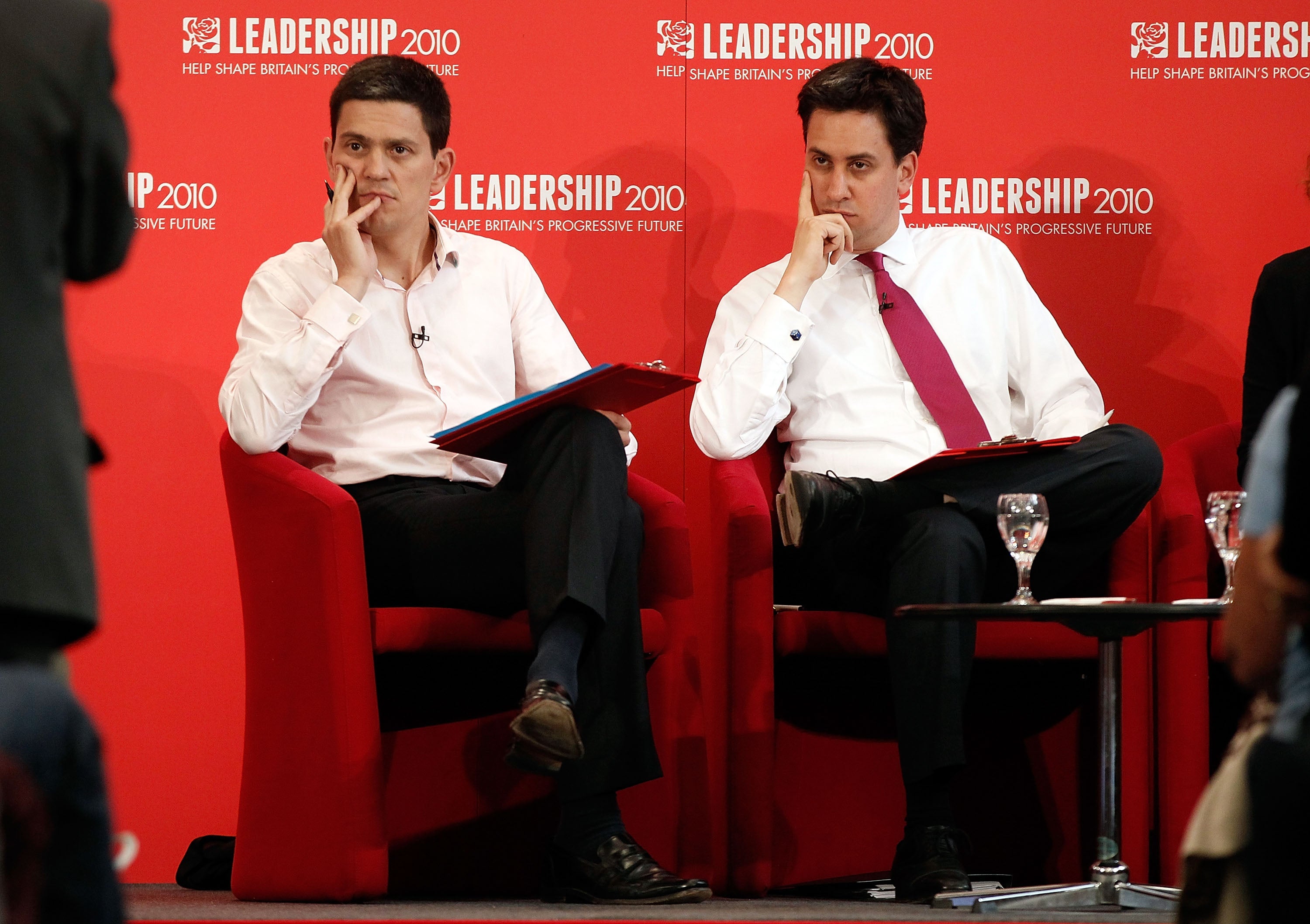David Miliband might struggle to find room in today’s Labour
Starmer’s party has moved on from Brexit but Miliband clearly hasn’t, says Sean O’Grady


It seems to surprise people that David Miliband, fresh faced and energetic, is 57 years of age – one year younger than Nigel Farage, whose prolific intake of English ale and Rothmans fags is written all over his prematurely-aged frogface.
Talk of comebacks swirl around both these political veterans, with only the flimsiest of denials. Miliband quit parliament in 2013, a couple of years after he lost the Labour leadership race to his brother. Asked on Andrew Marr’s LBC show about a return, he merely replied: “That’s not been decided yet. That’s not done.” He’s available, in other words.
While it’s fairly plain what professional disrupter Farage is up to – causing trouble for Rishi Sunak and Jeremy Hunt – it’s not so clear with Miliband. Obviously he is doing excellent work at International Rescue, but he’s been out of British politics for a while; he sat out his brother’s leadership, the Corbyn years, Brexit and Covid. While the likes of Ed Miliband, Keir Starmer, Jon Ashworth and Yvette Cooper trudged through the lean times, David was in New York. No tedious arguments with Momentum, futile Opposition Day motions, deselection scraps or dismal election nights for our David. His re-entry from orbit may be a little turbulent, and he would be well advised to avoid the impression that he’s simply back to reclaim his Blairite birthright or that he’s only interested in the working people of Britain when Labour is well ahead in the polls.
What would David do? He’d be an asset, in any role in opposition or in government, even though the Labour front bench is immeasurably stronger and the party more united than when the parliamentary party regularly passed votes of no-confidence in Corbyn. Bright, articulate, principled, his problem is that it seems unfair to unseat any of the present shadow cabinet to make space. So some humility and patience would be needed before he finds his proper place in the party. The likes of Rachel Reeves and Wes Streeting, to mention two possible leaders in waiting, would be wary of him usurping their ambitions.
Having said all that, such is David Miliband’s identification with the Blair years that, even in the reformed party of today, he’d be an unlikely leadership contender and might count himself lucky even to be tolerated by those in his party who still think Blair should be tried at The Hague. Miliband, reasonably rational and thoughtful, probably has more in common with the Corbynite left on refugees and, especially, Europe than they’d care to admit; but the Blairite caricature persists. And Miliband’s euro-enthusiasm and Blairite past would also be used by his Tory enemies to suggest that Stamer’s makeover of the party on Brexit and migration is unreliable. Voters might not be impressed by Brexit but they’re even more repelled by the thought of relitigating the whole saga, this time in reverse. David’s remark to Marr that “we’ve lost European cooperation because of Brexit – we’ve got to build it back” is about as much as the red wall could tolerate. David Miliband could have a future in British politics, but rather like Cristiano Ronaldo returning to Manchester United after a long absence, there may be difficulties with fitting back in to the squad.
Join our commenting forum
Join thought-provoking conversations, follow other Independent readers and see their replies
Comments
Bookmark popover
Removed from bookmarks